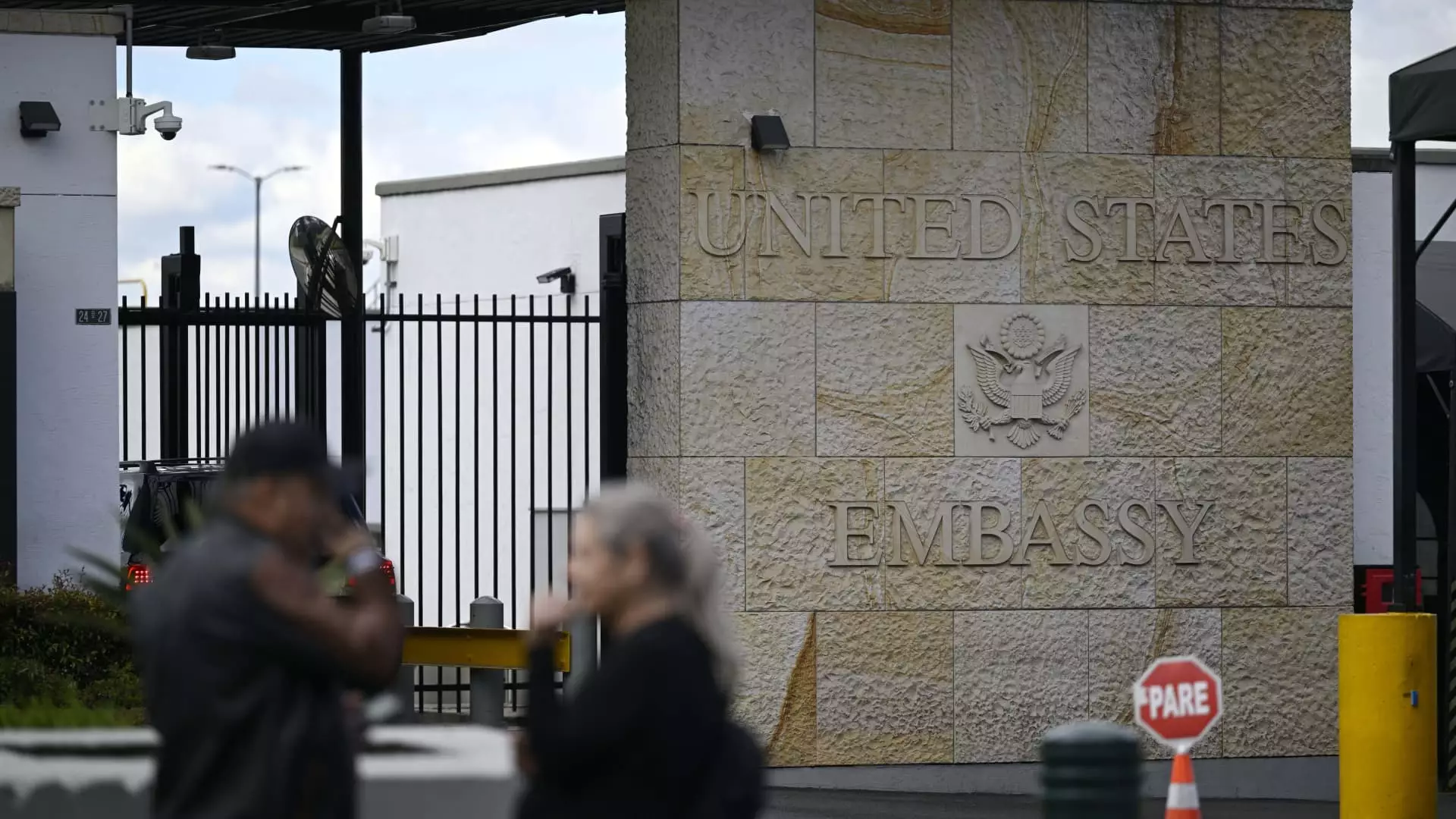The diplomatic landscape of the United States is undergoing significant transformation under President Donald Trump’s administration. Recent reports indicate a directive aimed at reducing the workforce at U.S. embassies worldwide, a move that has sparked debate regarding its implications for American diplomacy and international relations. This article seeks to critically analyze these developments, addressing both the potential motivations behind such cuts and the broader implications for the U.S. foreign service.
According to various sources, U.S. embassies have been instructed to prepare for a 10% reduction in both American and locally employed staff. Although this measure might be interpreted as a cost-cutting initiative, it raises serious questions about the administration’s vision for diplomatic engagement. Staff at embassies play a crucial role in representing U.S. interests abroad; thus, minimizing personnel could hinder the ability of the diplomatic corps to effectively manage relationships with foreign nations.
The directive aligns with the administration’s overarching goal of “America First,” a philosophy that seems to undervalue the importance of diplomacy in favor of a more insular approach. It suggests a break from traditional diplomatic strategies, which emphasize the importance of people-to-people connections and sustained engagement with partner nations. By mandating substantial workforce reductions, the Trump administration risks diminishing the capacity for nuanced understanding and bilateral dialogue.
In addition to cuts in embassy staff, the termination of approximately 60 contractors at the State Department’s Democracy, Human Rights, and Labor Bureau highlights a troubling trend. These roles often serve as a bridge to promote U.S. values and bolster democratic institutions in other countries. Their elimination could signify a diminished U.S. commitment to human rights advocacy globally, undermining relationships with both allies and former adversaries who may look to the U.S. as an exemplar of democratic principles.
Furthermore, the potential for additional cuts across other bureaus reflects a broader strategy of downsizing within the State Department. While proponents of reduced government spending might argue that such measures are financially prudent, the political and strategic ramifications must also be considered. A weakened State Department could lead to an erosion of U.S. influence in an increasingly complex and multipolar world.
Executive Orders and the “Deep State” Narrative
The issuance of an executive order directing Secretary of State Marco Rubio to overhaul the foreign service reveals a deeper agenda: a desire to align diplomatic efforts closely with the president’s foreign policy goals. The order’s alarming stipulations—that failure to faithfully execute the president’s agenda could result in professional consequences—further cultivate a climate of fear within governmental departments. Such an atmosphere could prompt self-censorship among diplomats who may feel compelled to compromise their professional integrity to align with the administration’s wishes.
This strategy also speaks to the Trump administration’s broader crusade against what they describe as the “deep state.” By initiatives aimed at hunting down perceived disloyalty, the administration appears to be intentionally reshaping the bureaucratic landscape. The implications of this are profound, as the traditional role of civil servants—to promote consistency, stability, and adherence to the law—could be sacrificed on the altar of political expediency.
Long-Term Consequences for U.S. Diplomacy
In attempting to streamline the State Department and remove what are viewed as obstacles to enacting the president’s ideology, there exists a perilous risk of unintended consequences. U.S. foreign policy has historically thrived on continuity and cooperation with various international partners. By aggressively pursuing cuts and personnel changes, the administration may unwittingly create a vacuum of expertise and experience, leaving the U.S. less equipped to address global challenges.
Furthermore, the dismantling of instrumental agencies like the U.S. Agency for International Development represents a retreat from the United States’ role as a global leader in humanitarian assistance and international development. Such actions could invite greater instability in regions that depend on U.S. aid and support, ultimately undermining both security and economic interests.
As President Trump’s administration solidifies its personnel cuts, it is crucial to reflect on the long-term implications for the U.S. diplomatic corps. The consolidation of power through employee terminations and restructured mandates could profoundly reshape the nature of American diplomacy. The emphasis on alignment with a singular vision overlooks the essential complexities of international relations and risks isolating the U.S. on the world stage. Ultimately, as the U.S. navigates this transformation, it must heed the lessons of diplomatic history, cherishing the value of diversity of thought and experienced representation, lest it sacrifice its global standing in pursuit of a fleeting political narrative.


Leave a Reply